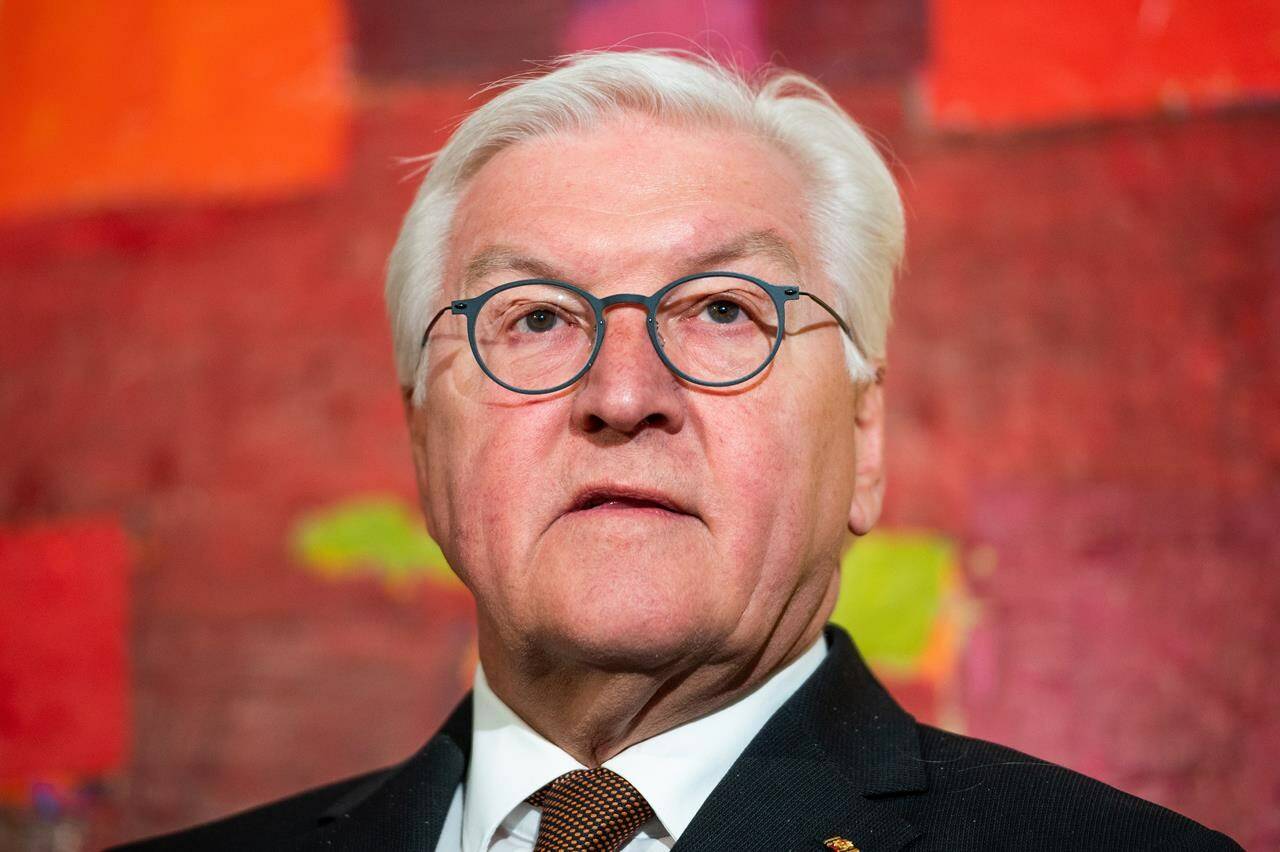The visit of Germany’s president to Metro Vancouver creates a “rare” opportunity for Canadian businesses to speak directly with a key trade partner’s leadership, says a top B.C. executive who hosted the foreign dignitary.
Greater Vancouver Board of Trade CEO Bridgitte Anderson hosted a roundtable discussion headlined by German President Frank-Walter Steinmeier, on the third day of his four-day trip to Canada.
The discussion included about 20 delegates from both Germany and Canada.
The conversation mainly focused on the topics of Indigenous reconciliation, the net-zero economy and reorganizing supply chains in the Indo-Pacific region.
The media was not allowed to attribute quotes to delegates who spoke at the event, but the discussion touched on topics such as balancing the risks and opportunities of doing business with China, as well as whether India — which receives a large portion of its military supplies from Russia — is a suitable alternative in creating new value chains.
Anderson says it makes sense that German officials wanted to engage Canada on these issues while in Vancouver as the gateway to the Asia Pacific.
“And that’s important for the Indo-Pacific strategy, but it’s also important for the EU, as well. And having an opportunity to host Germany today, I think, it’s just one example of how we can strengthen trade relations globally with other European partners,” Anderson said in an interview on Tuesday.
Delegates also spent some time talking about how European partners should work with First Nations communities to ensure Indigenous rights are respected for projects involving foreign investment.
Beyond the Board of Trade roundtable, Steinmeier also visited the Burnaby fuel cell company Cellcentric on Tuesday and joined B.C. Premier David Eby on a boat tour of Vancouver Harbour.
Steinmeier later toured the University of B.C.’s Smart Hydrogen Energy District — a soon-to-open hydrogen fuelling station. The president and members of the German delegation met applied science researchers working on clean energy and climate change solutions, including engineers collaborating with German research institutions.
Eby says Steinmeier’s visit gives the province a valuable opportunity to create ties — especially given Canada and Germany’s commitment to creating a more sustainable, greener economy through innovation.
“There’s lots for us to talk about,” Eby said. “Germany has a significant amount of foreign direct investment right here in British Columbia. Many German companies (are) operating here. There’s opportunity for increased German investment here in British Columbia.”
According to Statistics Canada, Germany was Canada’s seventh largest source of foreign direct investment in 2021, totalling $31.9 billion.
Germany was also Canada’s largest merchandise export market in the European Union last year, Anderson said.
Steinmeier will next travel north to Yellowknife and Tuktoyaktuk on Wednesday for events, including meetings with government officials and a tour of the Canadian Armed Forces Joint Operations Centre in the North.
—Chuck Chiang, The Canadian Press
READ MORE: German President Frank-Walter Steinmeier visiting B.C’s Lower Mainland
READ MORE: Poland demands $1.3 trillion in war damages from Germany

